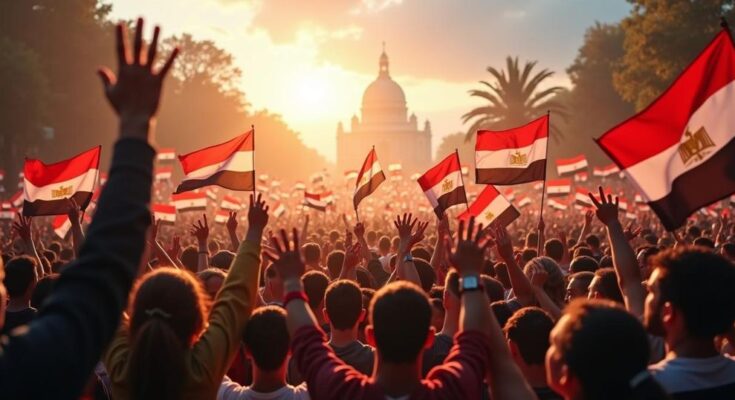The Muslim Brotherhood faced upheaval from its initial support of the 2011 protests against Mubarak to securing electoral success through the Freedom and Justice Party. However, dissatisfaction with governance led to widespread protests, culminating in a military coup in July 2013, which resulted in the arrest of Brotherhood leaders and the sector being designated as a terrorist organization.
In January 2011, a youth-led protest movement emerged in Egypt against the Mubarak regime, prompting the Muslim Brotherhood to publicly support the demonstrations aimed at political change. Following the eventual ousting of President Mubarak in February, the Brotherhood decided to engage more actively in politics. In late April 2011, they founded the Freedom and Justice Party, which sought official recognition and endeavored to present a political platform that would incorporate Islamic principles while remaining inclusive of diverse religious backgrounds. By June of that year, the party received recognition, and in subsequent elections, secured approximately 47% of the seats in the People’s Assembly, allowing them to significantly influence the drafting of a new constitution.
The Muslim Brotherhood, founded in 1928 by Hassan al-Banna in Egypt, is a transnational Islamic organization that has exercised considerable political influence in various Arab countries, particularly during moments of political upheaval. During the Egyptian Revolution of 2011, the Brotherhood’s support for the youth protests signaled a shift towards political engagement in Egypt, culminating in their founding of the Freedom and Justice Party and later victory in parliamentary elections. This marked a significant transition for the organization from a semi-legal movement facing repression to a dominating political force in post-revolutionary Egypt. However, their political ascendancy was challenged by public dissatisfaction with governance, economic issues, and growing opposition, culminating in a military coup in July 2013 that repressed the Brotherhood and led to its designation as a terrorist organization.
The trajectory of the Muslim Brotherhood from a key player in the 2011 protests to a repressed entity by 2013 highlights the complexities of political maneuvering in post-revolutionary Egypt. Their initial electoral successes were overshadowed by widespread opposition and unrest, culminating in a military coup that reversed their gains and instigated a severe crackdown on the organization, leading to a mass detention of members and the classification of the Brotherhood as a terrorist group.
Original Source: www.britannica.com




